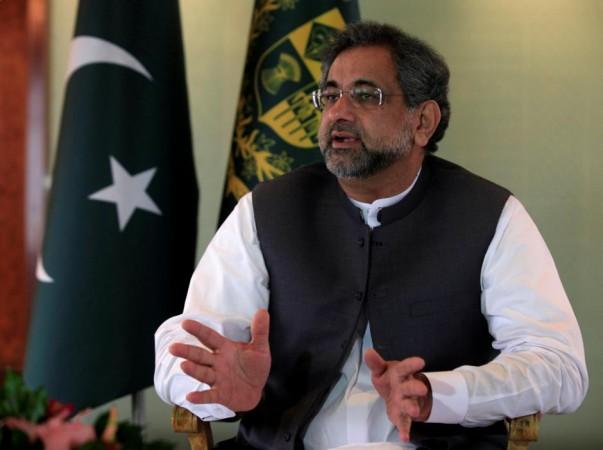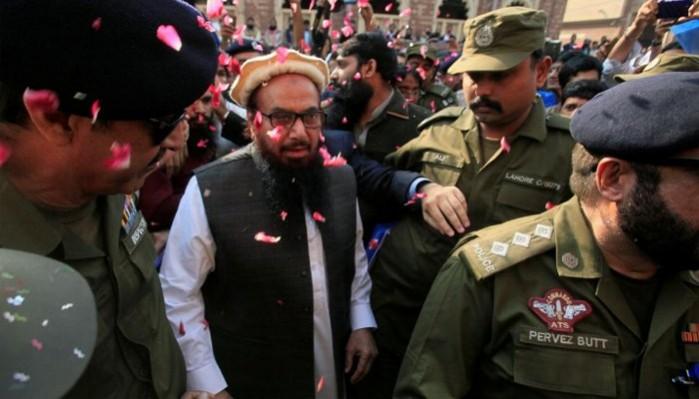Pakistan Prime Minister Shahid Khaqan Abbasi on Thursday said that India has not provided any evidence against Jamaat-ud-Dawah (JuD) chief Hafiz Saeed yet. Abbasi's statement comes days after the United States warned that there would be repercussions if Islamabad does not detain Saeed again and persecute JuD.
The LeT co-founder was released from house arrest after a Pakistan court ordered his release a few days ago. Saeed and four of his accomplices— Abdullah Ubaid, Malik Zafar Iqbal, Abdul Rehman Abid and Qazi Kashif Hussain— were detained by the Punjab government on January 31 this year for 90 days under preventative detention under the Anti-Terrorism Act 1997.
Saeed was designated a terrorist by the United Nations and the United States. Washington had also announced a bounty of $10 million for the banned JuD leader.

Pakistan PM, in an interview with Bloomberg, said that Saaed should be prosecuted internationally if the charges against him could be substantiated, noting that he was released from house arrest because there were "no charges" against him.
"The court, a three-judge bench, has released him (Saeed) saying there are no charges against him, the country has a law you know," Abbasi said.
"Prosecute him internationally if there is substance to these charges -- these are accusations only. No evidence has been provided by India," he added, without giving details.

The JuD chief has also been accused of being the mastermind behind the 2008 Mumbai terror attacks, which killed 166 people. The Mumbai attack was carried out by a 10-member LeT team, one of whom – Ajmal Kasab – was captured alive. Pakistan, in 2009, had acknowledged that the conspiracy behind the attacks was hatched on its soil. Islamabad also arrested seven people for the attacks, including LeT operations commander Zakiur Rehman Lakhvi.
India has repeatedly said that it has provided enough evidence to Pakistan against Saeed, however, no concrete action has been taken by the Islamabad government yet.















